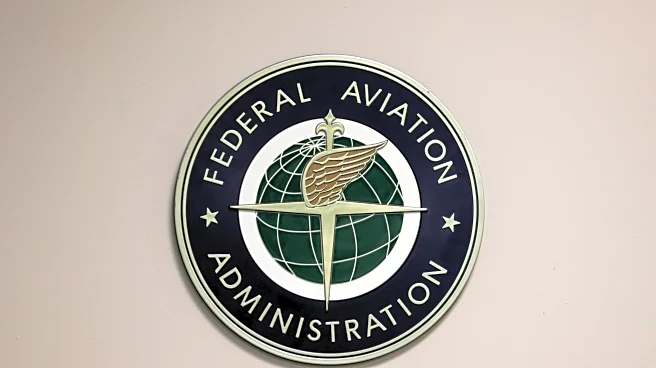What's Happening?
A deadly explosion on the cargo ship MSC Kyparissia in Malaysia resulted in the deaths of three individuals, including a prominent British scientist, Darren Holling. Holling, a safety chief from Durham,
was investigating a fire on the vessel when the explosion occurred. The incident took place while containers were being unloaded from the ship. Alongside Holling, engineer Diaday Jason Hernia from the Philippines and safety inspector Sugumaran Kolanthai from Malaysia also lost their lives. Three other individuals were injured and transported to a hospital for treatment. The explosion did not release any hazardous or toxic gases, according to the Marine Department of Malaysia.
Why It's Important?
The tragic incident highlights the risks associated with maritime operations, particularly during the unloading of cargo. The death of Darren Holling, a leading chemical incident investigator, underscores the importance of safety protocols and expert assessments in preventing such disasters. The event may prompt a review of safety measures and emergency response strategies within the shipping industry, potentially influencing international maritime safety standards. The loss of life and injuries also bring attention to the need for improved safety training and equipment for personnel working in high-risk environments.
What's Next?
Following the explosion, the Marine Department of Malaysia has closed all entry and exit routes to the affected area for safety reasons. An Oil Spill Response Team remains on standby, although no hazardous materials were released. The incident may lead to further investigations into the cause of the explosion and the effectiveness of current safety measures. Maritime officials and safety experts may collaborate to enhance protocols and prevent future occurrences. The families of the victims are expected to receive condolences and support from the authorities.
Beyond the Headlines
The incident raises questions about the adequacy of safety inspections and the preparedness of emergency response teams in maritime settings. It may also lead to discussions on the ethical responsibilities of shipping companies to ensure the safety of their employees and contractors. Long-term implications could include changes in regulatory frameworks governing maritime operations and increased scrutiny of safety practices in the industry.










